Featured Alumni
-
Jennifer Abshire Wicker, '11
Jennifer Abshire Wicker, MA, LPC
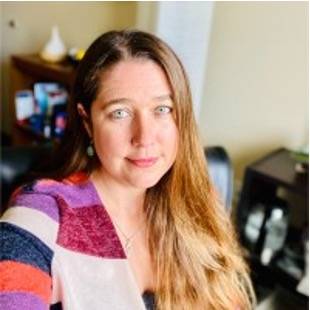
Jennifer was born with a yearning to help others. As an undergraduate at Texas State, she chose psychology as her major because of a desire to learn more about the phenomenon of psychosis and how individuals with perceptual differences experience the world around them. She credits her former Texas State instructor Mr. David Carpenter for setting her on her career path as a Licensed Professional Counselor (LPC).
After completing a bachelor’s degree in psychology in 2007, Jennifer remained at Texas State to pursue a Master of Arts in Health Psychology and to complete her LPC training. She graduated again in 2011. Jennifer’s first job after graduation was at ResCare in San Marcos, where she assisted in the rehabilitation of individuals who had experienced traumatic brain injury. She began her career as a member of the direct care staff and ultimately rose to the positions of therapist and case manager before moving to her current position at the Hays-Caldwell Women’s Center (HCWC) in San Marcos.
The HCWC is a non-profit organization offering free and confidential services to victims of family violence, dating violence, sexual assault, and child abuse. Within the HCWC, Jennifer serves as Program Director of the Counseling and Resource Center. In this role, she supervises counselors, legal advocates, and resource advocates. In her work, she strives to exemplify a transformational management style and enjoys helping her colleagues to grow in their careers. Further, even though she now holds a leadership position within her organization, Jennifer is still able to work with clients every day. Making a difference in the lives of others is a major reason why she loves her job.
Most important thing she learned at Texas State: Courses like Abnormal Psychology, Adulthood and Aging, and Health Psychology provide information that can be applied in real life. For example, studies of the factors that influence public acceptance of and willingness to participant in health-related behaviors are obviously applicable now as we are confronted with the COVID pandemic.
Favorite classes at Texas State: Sensation and Perception with Dr. Oberle and Adulthood and Aging with Mr. David Carpenter.
Fondest memory of San Marcos: Jennifer met her husband while they were students at Texas State!
Advice to current Texas State students: With respect to your studies and ultimate career, have a plan…but a flexible plan. Jump on any chances for internships because they give you work experience and the opportunity to try on a role to see if that is a career you would like to pursue. Finally, do not be afraid to network and talk to your professors!
-
Rodrigo Aguayo, '16
Rodrigo Aguayo, Doctoral Student
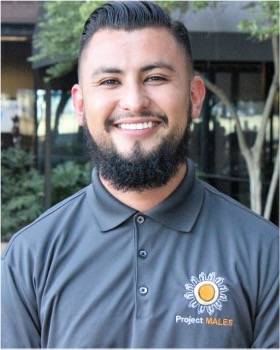
Rodrigo Aguayo is a doctoral student in the Program of Higher Educational Leadership (PHEL) at UT Austin, as well as a Program Coordinator for Project MALES (Mentoring to Achieve Latino Educational Success). He began his educational career at Texas State, where his interest in higher education and student affairs was sparked by an on-campus job for the PACE Center. At PACE, Rodrigo served as a mentor for the program’s minority male initiative. This on-campus job provided him with mentors like Dr. Anna Moczygema and Dr. Victoria Black, who helped him not only through his time at Texas State, but also guided him when it was time to start exploring future careers and graduate programs. Rodrigo’s Texas State experience set him on his path to becoming the scholar-practitioner that he is today.
Rodrigo’s doctoral research focuses on the educational experiences of Latino men throughout the K-20 pipeline. This interest is very well aligned with his full-time job with Project MALES, which is an award-winning research-based mentoring program that connects undergraduate students from UT Austin with middle and high school young men to support them in their educational experiences. In his role as Program Coordinator, Rodrigo engages directly with K-12 and undergraduate and graduate students, disseminates program accomplishments at national conferences, and oversees the IMPACT Course, a service-learning course designed to train undergraduate mentors.
Most important thing he learned at Texas State: Rodrigo credits Texas state for teaching him how to be a mentor, a skill that he uses every day at Project MALES. He also noted that the skills he gained as a Psychology major helped him to recognize that the people may be going through challenges that we may not always see. This training taught him to be a more patient, compassionate, empathetic human being.
Favorite class at Texas State: Rodrigo claims that all his courses at Texas State were “amazing…from Intro to capstone”. He especially enjoyed learning about what happens to humans from birth through death in PSY 3313 Adulthood and Aging and about how the mind perceives external stimuli in PSY 3321 Sensation and Perception.
Fondest memories of San Marcos: Rodrigo’s fondest memories of San Marcos are with the friends that he made throughout his time at Texas State, studying at the Alkek Library or floating down the river. He believes that San Marcos and Texas State are “pure magic” and great spaces to make lifelong friends.
Advice to current Texas State students: For brand-new first-year students, Rodrigo suggests finding an organization or job on campus that can help new students connect with the campus and grow. He says, “connect yourself to campus, and the campus will lend its connections to you.” Great advice!
-
Ana Viera Ayala, ’04
Ana Viera Ayala, Associate General Counsel, University of
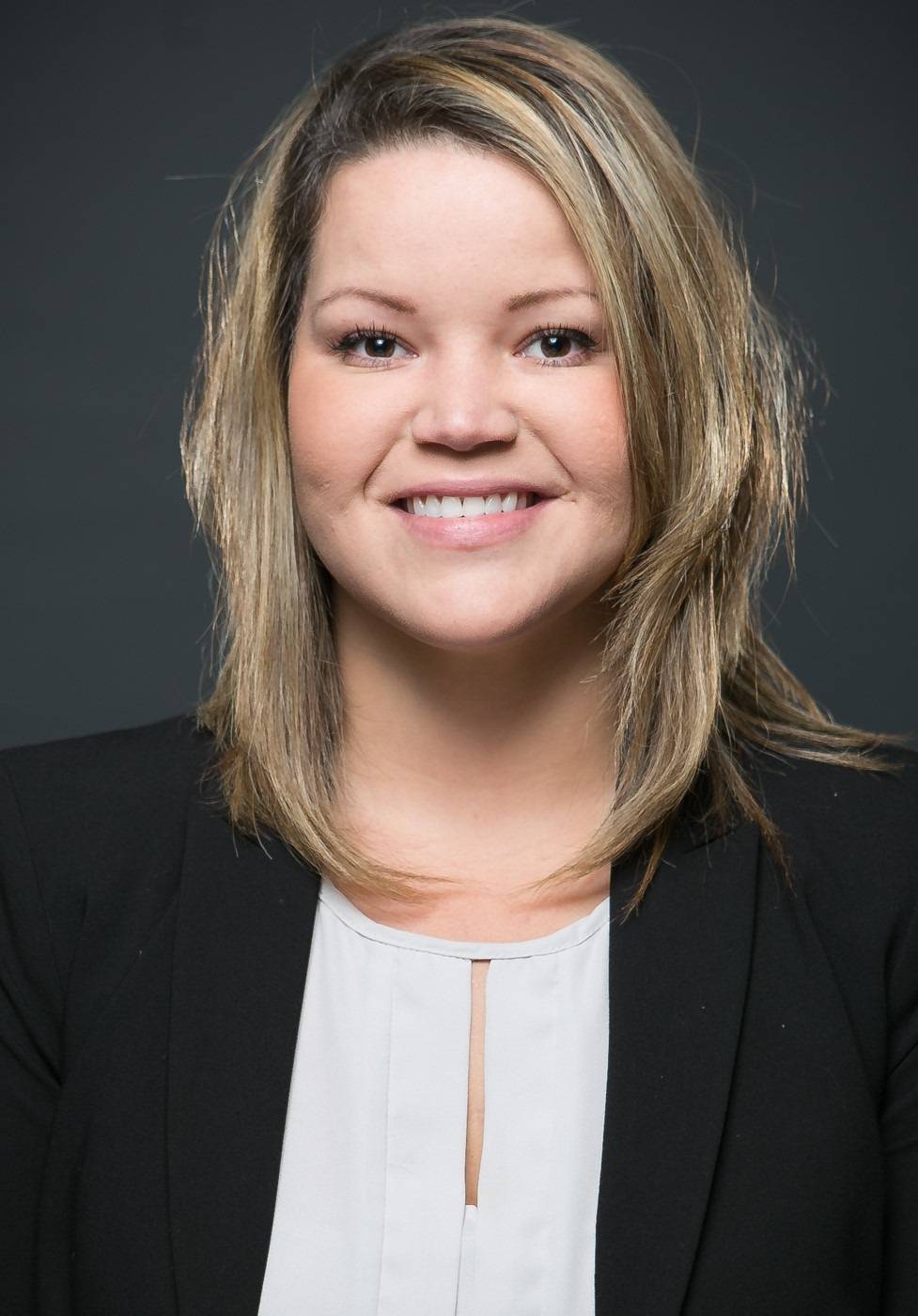
Texas System
Ana Viera Ayala is originally from Brazil and moved to Texas with her family in 1997 after a brief stop in Connecticut. She was a psychology major and biology minor at Texas State. She initially wanted to pursue a career in academia after Dr. Shirley Ogletree introduced her to research and other opportunities in psychology. However, after graduating from Texas State in 2004, she ultimately decided to follow in her mother’s footsteps and become a lawyer. She was accepted into the University of Houston School of Law in 2005 and graduated in 2008. Shortly after, she moved to Austin and served as an Assistant Attorney General for the Open Records division of the Texas Attorney General’s Office for nearly five years. Ana is currently an Associate General Counsel for the University of Texas System in Austin, TX.
Are you still using what you learned at Texas State?
Ana’s experience in studying psychology at Texas State, especially the attention to human connections, prepared her for the legal field which she described as an innately confrontational profession which can be difficult to navigate.
What was your favorite class at Texas State?
Ana enjoyed every class she had with Dr. Ogletree. She also loved Magic and Rituals and Brain and Behavior.
What is your fondest memory of San Marcos?
Ana felt fortunate to be attending school in a very naturally pretty setting and appreciated the ability to relax and enjoy the beauty around her as many universities are not located in such a pretty environment.
What is your advice to current Texas State students?
Ana encourages students to go to class, even if they are feeling tired or having a bad day. For upper division students, should a student feel a change of heart regarding their degree path, they should talk to Career Services and ask for advice. Ana shared that first-generation students and especially international students with whom she personally identifies may not know how to navigate the education process. The university staff are there to help, and she appreciates having such a wonderful educational experience at Texas State University.
-
Karen Bermudez, '13
Karen Bermudez, MSSW Student
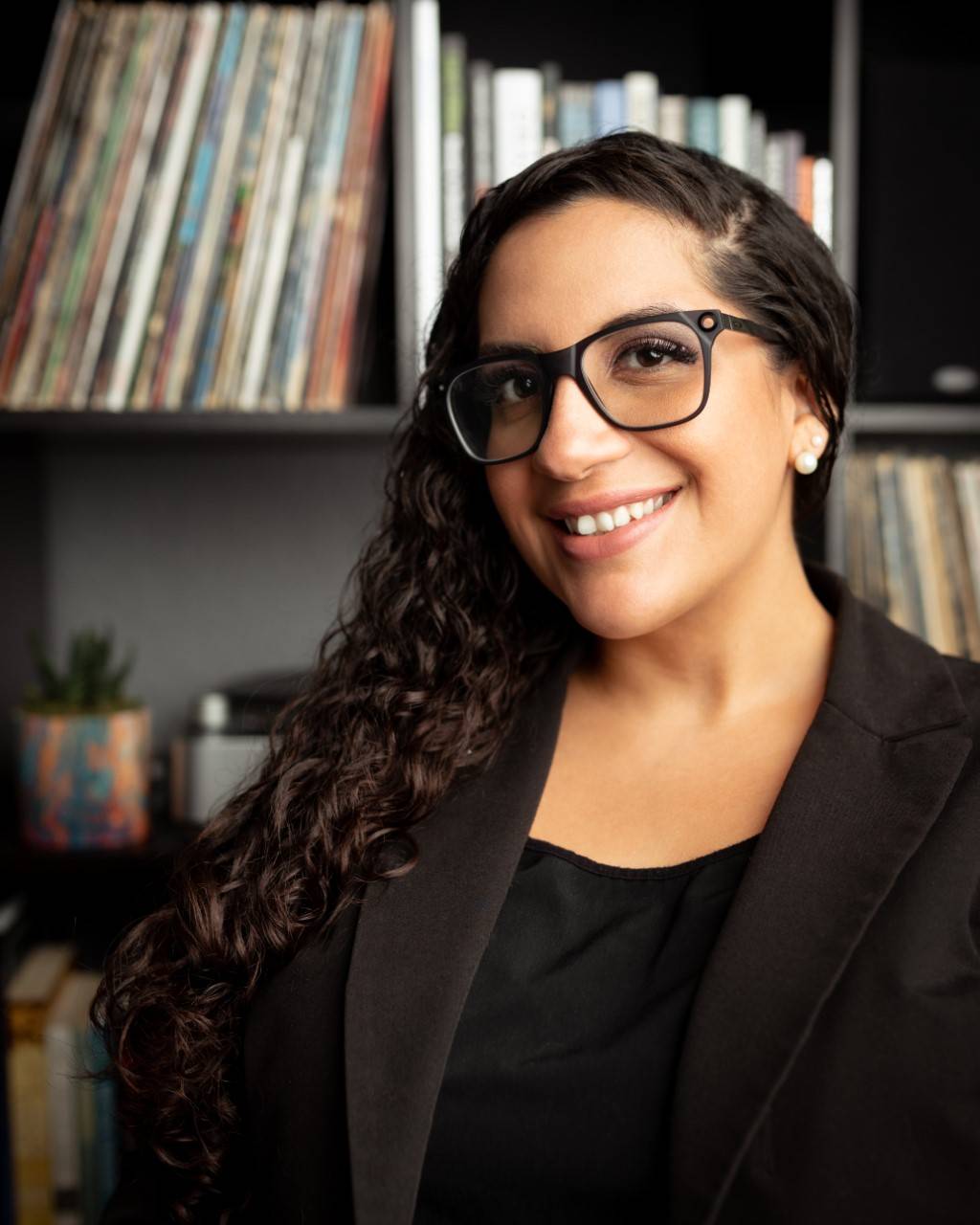
Karen Bermudez is a Master of Science in Social Work (MSSW) student in the Steve Hicks School of Social Work at the University of Texas at Austin. She was a first-generation college student, graduating from Texas State with a BA in psychology and a minor in sociology in 2013. Karen currently works for the Division of Community Engagement and Health Equity at Dell Medical School as a marketing and communication strategist. After graduating from Texas State, she worked in various settings including the San Marcos Treatment Center, The Harris Center for Mental Health and IDD, and Teach for America. Karen was recently awarded the 2021-2022 Minority Fellowship with the Council on Social Work Education, which will provide mentoring, networking, and professional development as well as financial support as she finishes her MSSW studies. She was also selected for Washington Calling for Spring 2022, which will provide additional career development. After completing her MSSW studies, she plans to prepare for clinical social work licensure and work in medical social work with underserved populations or older adults.
Most important thing she learned at Texas State: Karen remembers talking to an adviser in the College of Education at Texas State who gave her a book Pedagogy of the Oppressed, 30th anniversary edition, which she found to be a meaningful read. As her career and educational path evolved, she entered her social work graduate program and was surprised to find this same book was a required reading in one of her first-year courses.
Favorite class at Texas State: Karen enjoyed her Death and Dying course in the Sociology department with Mrs. Lillian Dees and still has her "End of Life Directives and Last Wishes” assignment.
Fondest memories of San Marcos: Karen loved being outside on the Texas State campus. She remembers coming to Bobcat Day and seeing the campus and Old Main for the first time. She thought the campus was so pretty and had so many trees that it “reminded her of camping.”
Advice to new Texas State students: Join as many organizations as you can. Building community is important for your college experience. For example, she joined the Hispanic sorority Kappa Delta Chi, and other student members gave her information on the academic, professional, and networking levels. Explore your career options and don’t worry about going to graduate school right away. She found that taking her time and going into the workforce before going to graduate school was helpful for her to make the right decision about graduate school.
-
Dr. Lindsay Bira, '08
Dr. Lindsay Bira, UT Health San Antonio
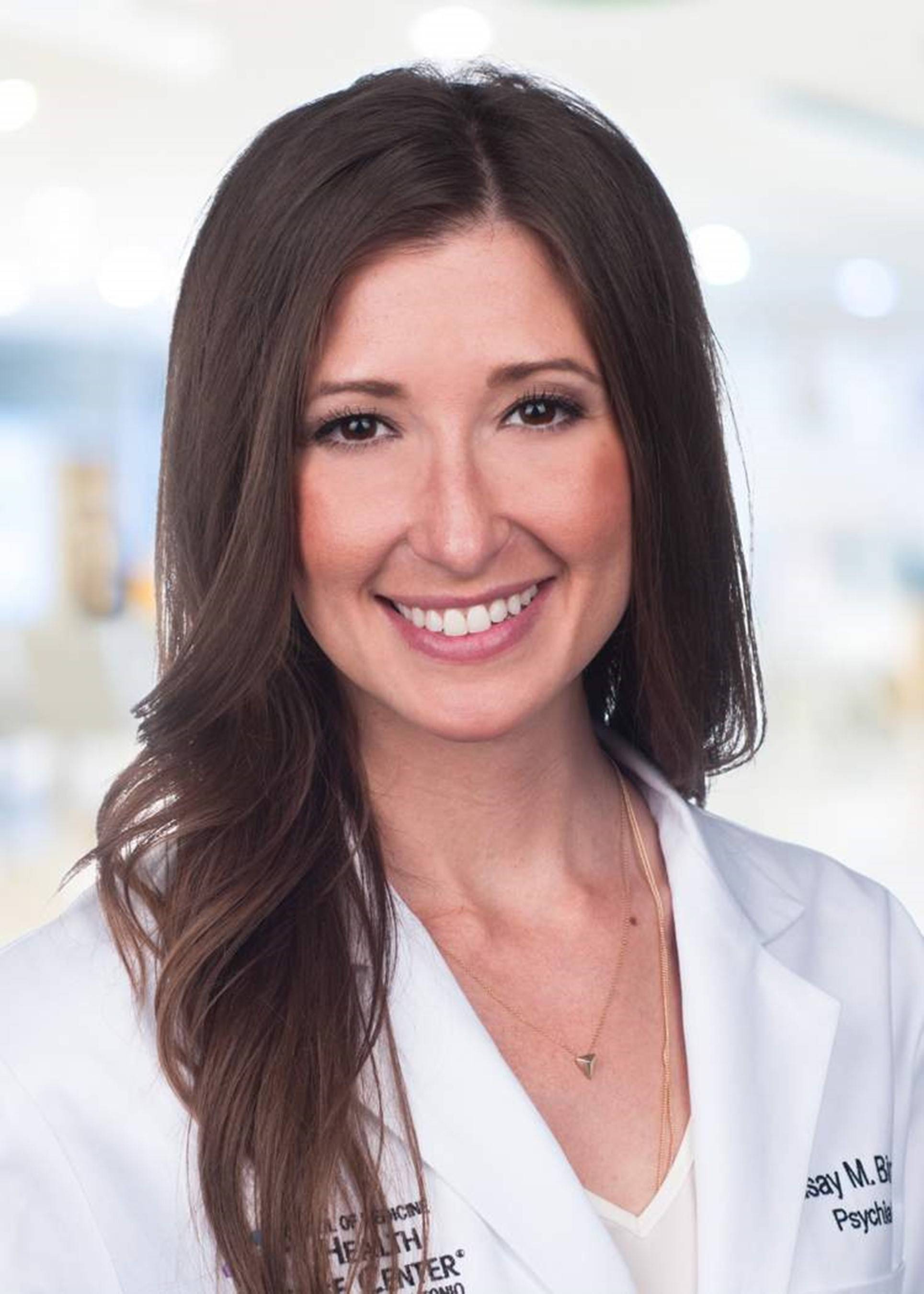
Recognized by the university in 2016 as a Distinguished Alumni, Dr. Bira graduated from the Texas State Psychology program in 2008 before going on to complete her Ph.D. in Clinical Health Psychology from the University of Miami and her residency at the Boston Consortium, where she was a fellow for both Harvard Medical School and Boston University School of Medicine.
Dr. Bira currently has an Assistant Professorship at UT Health San Antonio School of Medicine Department of Psychiatry where she works with STRONG STAR, which is the largest research consortium for the treatment and prevention of Post-traumatic Stress Disorder in the world. She is also a clinical psychologist in private practice as well as a speaker and consultant.
Dr. Bira has been featured on local NBC and FOX affiliates, Women's Health Magazine, and on public radio programs. She recently participated in TEDx San Antonio where she gave a talk titled, "The Counterintuitive Life," covering how acting instinctively can reinforce problems and potentially lead to mental health issues. Evidence-based treatment for many mental health disorders is effective because it is approached in a manner that may initially seem counterintuitive, guiding the patient to do the opposite of what feels right to get better and achieve lasting change.
-
Michelle Bohn, '07
Michelle Bohn, First-Gen Proud
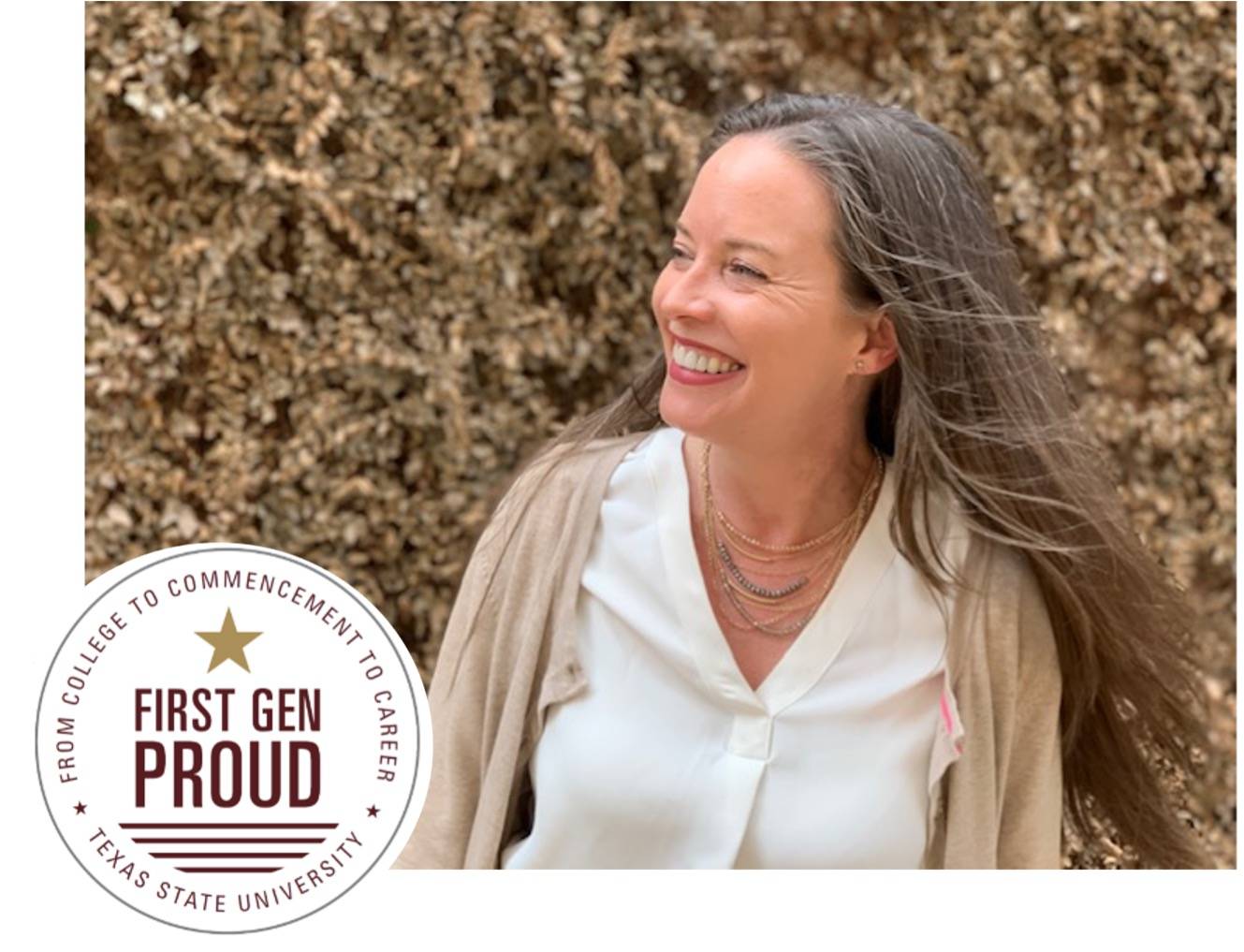
Michelle Bohn is a first-generation college graduate, lifelong Bobcat, and full-fledged San Martian. She has received both bachelor’s (double major in Psychology and Creative Writing) and master’s (Literature) degrees from Texas State. Michelle began her career as an Administrative Assistant in the Department of Psychology and currently serves as the Senior Administrative Assistant for University College. In this role, she has re-invigorated First-Gen Proud, a Texas State organization that empowers first-generation college students on our campus. As part of this effort, Michelle has raised the visibility of first-gen faculty and staff across the university and has worked to link them up with potential mentees by introducing the First-Gen Proud badge. Potential mentors display this badge on their office doors to express pride and support for first-gen students.
Most important thing she learned at Texas State: As a Psychology major, Michelle gained skills in organizational development and interpersonal communication that she still uses every day.
Favorite class at Texas State: PSY 3332 Psychology of Women with Dr. Shirley Ogletree and PSY 2311 Human Sexuality with Dr. Rick Archer (he did a great job with a potentially awkward topic!).
Fondest memories of San Marcos: The Just for Fun Parade -- this event has reinforced Michelle’s belief that San Martians are an open-minded bunch who really know how to have a good time! She also enjoys the yearly Sights & Sounds of Christmas festival.
Advice to new Texas State students: Accept that life is nonlinear but stay focused on your goals. For new students, get involved in organizations and make as many friends as you can. Get to know your professor, and make sure they know your name. Take advantage of the resources that Texas State offers…go to the writing center and let them walk you through your first college-level paper. And finally, internships can be an important way for students to figure out their career interests and to gain important experience that will help them as they enter the job market.
-
Dr. Michael Bourgeois, '97
Dr. Michael Bourgeois, Ph.D.
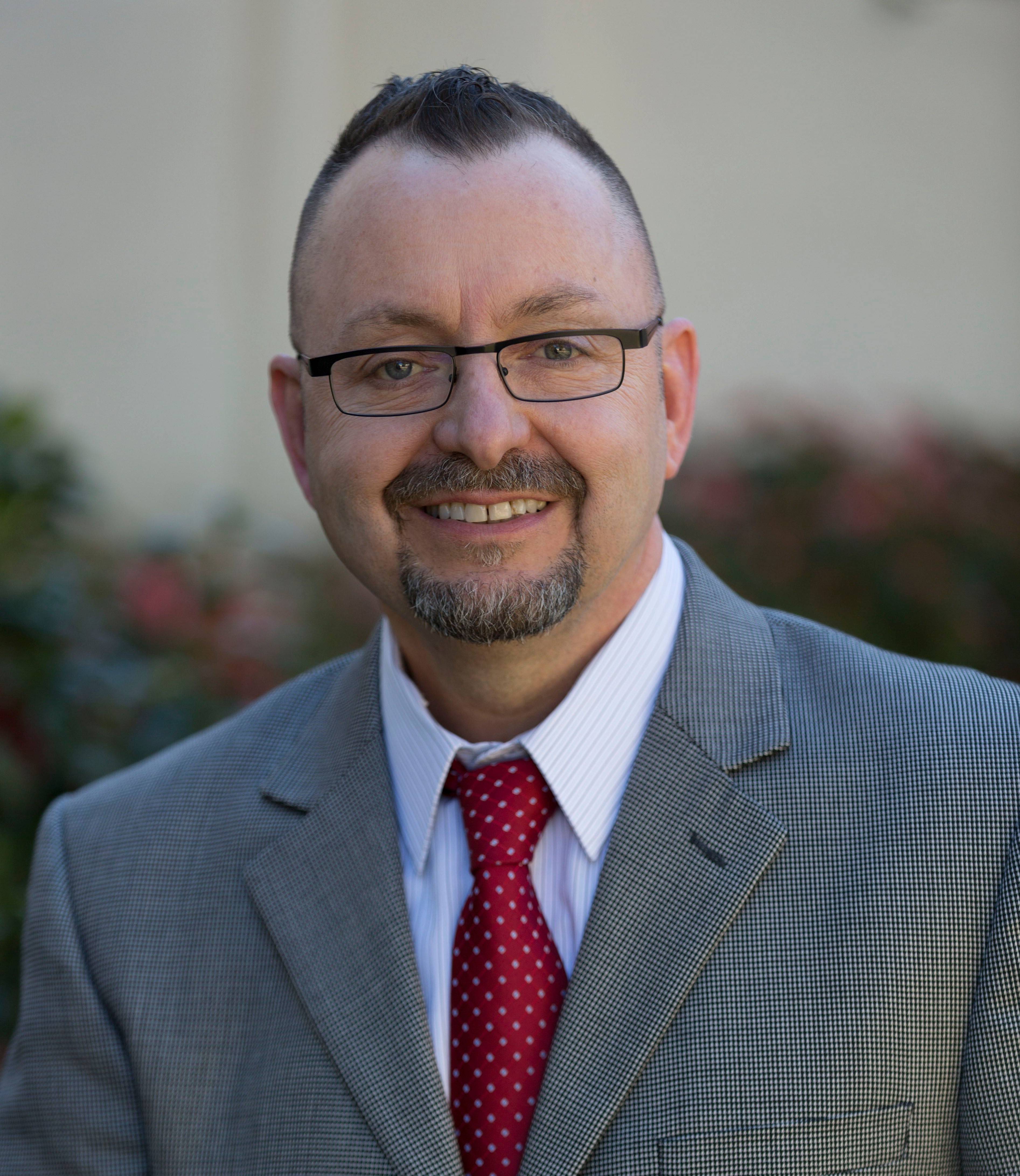
Dr. Bourgeois had a modest up-bringing in Beaumont, TX as the youngest of seven children. After completing high school and dabbling in retail and restaurant management, he decided to pursue an education in Psychology at Texas State University as a first-generation college student, with the goal of becoming a therapist. During his time as an undergraduate, he discovered a love of teaching through his work with the LGBT Speakers Bureau at Texas State. As a founding member, he worked to combat violence against LGBT individuals by speaking on campus and working with the residence hall directors to educate people, provide sensitivity training, and change laws to classify crimes against LGBT individuals as hate crimes.
After graduating from Texas State University in 1997 with a major in Psychology and a minor in Sociology, he decided to obtain M.A. and Ph.D. degrees in Sociology at the University of California, Santa Barbara to pursue his love of teaching. As a graduate student, he also realized his passion for research, and also found himself working in the Office of Institutional Research. Given the bleak job market for sociologists at the time, he shifted his research and focus to Institutional Research.
Dr. Bourgeois’ research has had a major impact on institutional research, education policy, equity, and inclusion and his work has been instrumental in shifting the field from merely providing institutional analytics to using the data to improve institutional effectiveness. In 2019, he left California for his current position as the Executive Director and Chief Data Strategist in Institutional Research at Purdue University Northwest. In 2008, Dr. Bourgeois also become one of the first 16,000 same-sex couples allowed to marry in the state of California, and he remains happily married today.
Most important thing he learned at Texas State: The close relationships between faculty and students were instrumental in shaping the way he thought about himself, education, and work, and strongly molded his core ethics and character.
Favorite classes at Texas State: Research Methods with Dr. Harvey Ginzburg, Introduction to Sociology with Dr. Susan Day
Fondest memory of San Marcos: Swimming in the San Marcos River in the watering hole near the restaurant at the corner of Aquarena Springs Drive and Sessom.
Advice to current Texas State students: Get to know your professors and don’t be afraid to ask questions. You will learn more during office hours than you will during class. As you plan for life after Texas State, definitely pursue your dreams, but be willing to be surprised that what you end up doing might not be what you originally planned, and be open to that.
-
Luis Cavazos, '13
Luis Cavazos, Nova Life Coaching
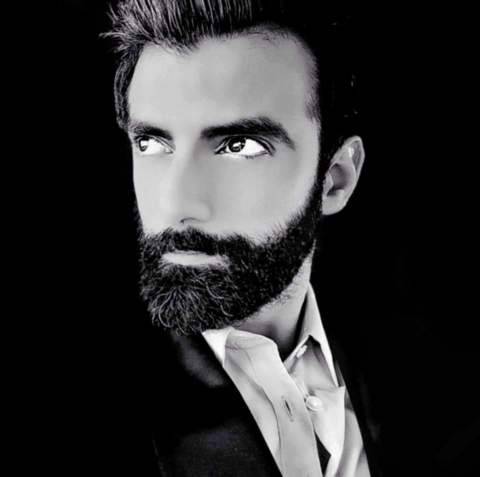
Luis Cavazos is a speaker, writer, and empowerment coach. He graduated from Texas State with a BA in Psychology in 2013 and completed a MS in Clinical Mental Health Counseling at the University of Texas at San Antonio. In 2016, he self-published The Five Virtues That Awaken Your Life, and he also started his business Nova Life Coaching in San Antonio. He works with both organizations and individual clients, with a particular focus on existential practice and the meaning of life. He works with organizations to analyze workplace conflicts. In 2020, he published his second book Emotional Beauty: How Its Gift Can Bring You to a New Meaning of Embrace. He has won several awards related to his writing and speaking, including Best Author of San Antonio 2018 by the San Antonio Current, Best Speaker in the Toastmasters Club (2018), and the Texas Trailblazer Award for Author of the Year and Best Mental Health Advocate (2020). In 2022, he gave a virtual talk on existential philosophy and finding meaning for the European Commission on Mental Health.
Most important thing he learned at Texas State: He remembers feeling shy when he arrived at Texas State, and his professors made him feel at home and were a second family. He appreciated the cohesive environment at Texas State, which allowed him to learn to be a good leader and mentor to others. He learned communication skills and the importance of sharing our stories to be more empathetic. His Choice Theory class gave him a glimpse of life as a therapist, and he got excited about his future career. He also learned about existential therapy at Texas State, which motivated his interests in graduate school.
Favorite classes at Texas State: Lifespan Development with Dr. Ogletree, Social Psychology with Dr. Angulo, Cognitive Processes with Dr. Westerberg, and Choice Theory with Ms. Rogers.
Fondest memories of San Marcos: Luis remembers making friends on the first day of class and having friends from different backgrounds and cultures. He remembers study groups with friends at Alkek, including a particular evening when he and a group of pajama-clad friends grabbed doughnuts and went to study at Alkek Library late at night. He also remembers going to River Pub and Grill on weekends, sitting outside by the dock and enjoying the sunset. He also enjoyed floating down the San Marcos River.
Advice to new Texas State students: College life is a series of events, and it’s important to be adaptive and flexible. Always keep in contact with parents and family, and reach out to a counselor or professors when facing unexpected challenges. Join clubs and organizations. Keep your mind moving toward growth and be open to new experiences.
Advice to students approaching graduation: He encourages students to continue finding new avenues for service to the community after graduation. He encourages them to continue to grow their passion while at the same time finding ways to give back and shape the future.
-
Dr. Russell Clayton, '12
Dr. Russell Clayton, FSU
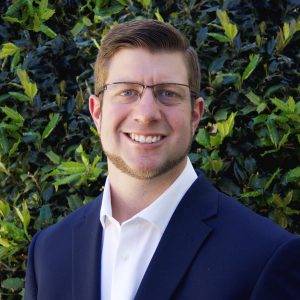
Dr. Russell Clayton is an Associate Professor in the School of Communication at Florida State University in Tallahassee, FL, where he lives with his wife Jessica and his two children, Boone (3 years) and Becca (14 months). As a freshman, Dr. Clayton originally was a business administration major, but it quickly changed after taking Introduction to Psychology. During his time as an undergraduate, he took Dr. Harvey Ginsburg’s Research Methods class and conducted psychophysiological research with Dr. Natalie Ceballos and Dr. Reiko Graham. These experiences led him to enroll in the Health Psychology graduate program at Texas State, where he completed his thesis with mentor Dr. Randall Osborne. Next, Dr. Clayton pursued a doctoral degree at the Missouri School of Journalism, where he worked in the Psychological Research on Information and Media Effects lab and completed the program in 2015. He is currently the director of the Cognition and Emotion at Florida State, where the goal of his research is to provide recommendations into how media content can be used to advance human health and wellness. I also teach undergraduate and graduate courses in media / communication studies.
Favorite class at Texas State: There were so many great classes in the psychology sequence! If he had to choose, it would be a toss-up between “Brain and Behavior” with Dr. Ceballos and “Psychopharmacology” with Dr. Schepis. They were so much fun and challenging! He has come to learn that this is a delicate balance (i.e., fun x challenge), but both professors seemed to have mastered the combination.
Fondest memories of San Marcos: Fondest memories include the river, food (i.e., Herbert’s queso), and all of the relationships he developed in and outside of the university.
Advice to new Texas State students: Visit with your professors, get involved, and be willing to say “Yes” to opportunities – even those that seem initially intimidating! Life begins at the end of your comfort zone.
Advice to students approaching graduation: Get involved with different organizations and be willing to sample experiences. That is, treat those last few years like a buffet: Sample from different opportunities that are available and see what you enjoy. Perhaps, like me, that will lead to a passionate career and a lifetime of enjoyment! Eat ‘Em Up, Cats!
-
Glenna Devonport, '08
Glenna Devonport, Cool Little Ones
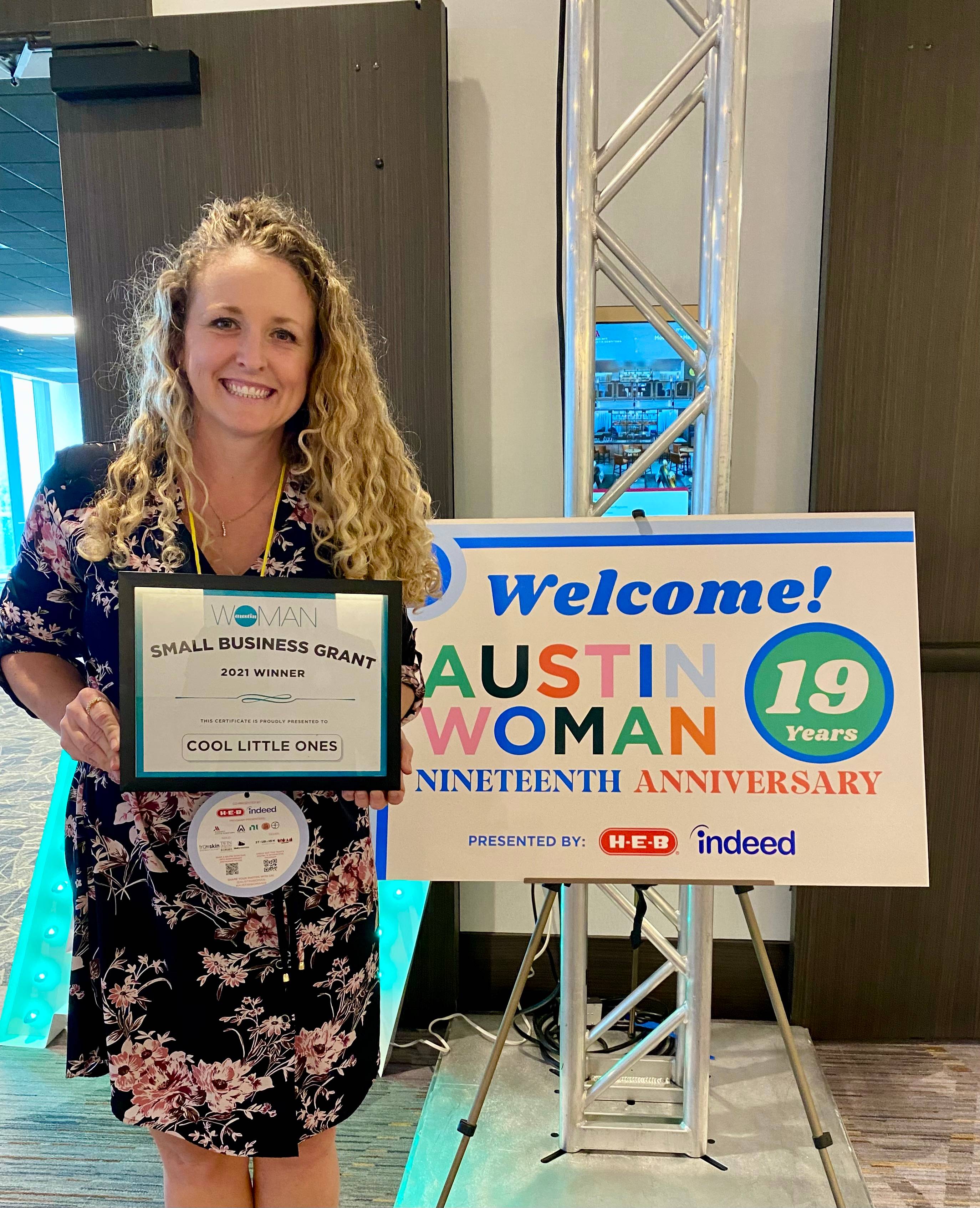
Glenna Devonport (Askey) is the owner of Cool Little Ones. Glenna grew up in Dripping Springs and always knew she wanted to go to Texas State. She graduated from Texas State with a BA in Psychology in 2008. After graduating, she went into healthcare sales and continued in healthcare management and operations until 2020. Her psychology degree was beneficial, particularly in managing and motivating people. In 2020, when the COVID-19 pandemic began, she shifted gears in her career. She was home with her two young children, and they were frequently playing outside during quarantine. She noticed how sweaty they were in the Texas heat and began sewing them moisture-wicking clothes out of her workout clothes. She began making clothes for friends’ children, and as her business grew, she connected with fabric wholesalers and manufacturers, and then she started her company Cool Little Ones. Her company’s goals are to make cute, comfortable, moisture-wicking, UV protection clothes for kids that they can wear outside no matter what they are doing. She uses her skills and knowledge in psychology and business on a daily basis. In 2021, she was honored to win the Austin Women’s Magazine small business award.
Most important thing she learned at Texas State: She credits Texas State with giving her the foundation and knowledge to start her own company. She learned not to be afraid to try new things, such as entrepreneurship and building a website.
Favorite class at Texas State: Accounting with Professor Moffatt and Human Sexuality with Professor Ogletree
Fondest memories of San Marcos: Glenna described Texas State as a “gem” of Central Texas. She appreciated the diversity of people and activities and the university’s “well rounded approach to developing young leaders and thinkers.”
Advice to new Texas State students: Get involved in on-campus activities and don’t being afraid to join a club where you don’t know anyone. She created a network through her activities at Texas State, such as the Delta Zeta sorority. After graduation, remember that your first job isn’t your last job. You will learn things that will be building blocks for your later career. Be open-minded about where your career takes you.
-
Dr. Kimberly (Rinehart) Gushanas, '09
Dr. Kimberly (Rinehart) Gushanas

Kimberly (Rinehart) Gushanas, M.A., Ph.D. (Class of 2009) is a graduate of the B.S. in Psychology Undergraduate program at Texas State University. Following her graduation from Texas State, Kimberly entered a master’s program in clinical psychology at the University of Houston, Clear Lake, where she researched anxiety disorders and deviant sexual behavior in pediatric populations. Upon successful completion of her master’s program, Kimberly received her licensure and began working for the Houston OCD Institute as part of their residential counseling and research coordination teams. After serving around 5 years in applied clinical settings, Kimberly set out to complete her Ph.D. in School Psychology with a Pediatric/Child Clinical Specialization from the University of Texas at Austin. She received pre- and post-doctoral internships at Dell Medical School (Texas Child Study Center), and Texas Children’s Hospital (Pediatric Health Psychology – Trauma). Currently, Kimberly is a licensed psychologist, clinical researcher, and assistant professor of psychiatry at the University of Texas – Medical Branch, located near Houston, Texas. She also volunteers with HOME (Humanitarian Outreach for Migrant Emotional Health), serving as a volunteer trauma-informed evaluator for asylum seekers and their attorneys. When asked to reflect on her time at Texas State, Kimberly emphasized how the B.S. program helped her develop a general understanding of psychological research, and how her mentorship experiences influenced how she consults and collaborates with colleagues from different areas of psychology (i.e., clinicians, researchers, instructors). She also remembers San Marcos as a place for relaxation, with lots of time spent at the river, and love – she and her husband met when they worked together at a San Marcos coffee shop. Kimberly offers great advice when asked about her former undergraduate self, saying, “be intentional with what you’re doing, but take time to relax, explore, and learn about yourself.”
-
Patrick Harris, '10
Patrick Harris, BA

Dr. Patrick Harris graduated from Texas State with a BA in Psychology in 2010. He was originally a Music major and then switched his major to Psychology with a minor in Religious Studies. He worked as a professional musician after graduation, but his first job in the mental health field was in community-based mental health in Harris County. Realizing he had a passion for working in mental health, he pursued a Master’s in Counseling from St. Edwards University. He received a PhD in Mind-Body Medicine with an emphasis in integrated mental health from Saybrook University in 2022. He has worked in community based-mental health in numerous settings and has taught psychology courses at Huston-Tillotson University and counseling courses at St. Edwards University. He is a certified clinical hypnotherapist and has particular interest in therapeutic humor. Currently, he is owner and clinical director of the Texas Institute of Mind-Body Medicine, and he is an operations director with the Gesundheit! Institute.
Are you still using what you learned at TXST in your career today? If so, how? His psychology professors such as Dr. Meeks, Dr. Ogletree, and Dr. Friedman were approachable and easy to talk to. They did not engage in gatekeeping of the content or the psychology field. He endeavors to be the same way in his professional life.
Favorite classes at Texas State: Abnormal Psychology with Dr. Huber and Sensation and Perception with Dr. Finke. He remembers how a field trip to Austin State Hospital for a pizza party and mingling with patients was an important opportunity to be exposed to people with severe mental illness in a way that was not exploitative.
Fondest memories of San Marcos: Spending time in the San Marcos River, going up to Old Main in the middle of the night for a peaceful view from the top of the quad, and the Philosophy Dialogue Series.
Advice to new Texas State students: Build relationships with your professors early on. There are many opportunities to build relationships and be curious and not judgmental. Know you will unlearn some things and learn new things. Both competing ideas can be right.
Advice to students approaching graduation: Build community with your peers and keep in touch. It gets tough to make friends as an adult, and college friendships are so precious and rewarding to carry into adulthood and will ease the transition to your new life after graduation. Also, don't stop at a bachelor’s degree. If the opportunities are available, continue your education by pursuing higher education, or at the very least, get into the habit of being a lifelong learner. You don't leave Texas State knowing everything, but you are now equipped to seek out reliable information, apply the knowledge you've gained, and exercise critical thinking. Psychology and mental health are such diverse fields; there is a space for you in academia or clinical work or research. He always shares a Carl Rogers quote with his students at the end of a semester; "the only person who is educated is the one who has learned how to learn and change."
-
Morgan Kelly ’16

Morgan Kelly, MAPR
Morgan Kelly graduated from the Masters in Psychological Research program at Texas State in 2016, and then worked as a research coordinator at the University of Washington where she conducted genetic-based autism research. After two years, she left this position to pursue a position in her field of interest, substance use, and began working at Washington State University, where she was the site manager for a clinical trial testing a behavioral intervention for individuals with alcohol use disorders and co-occurring mental health issues. Although she enjoyed this position, the trial was greatly hampered by the emergence of the pandemic. Morgan currently works as a Program Manager for the Multidisciplinary Association for Psychedelic Studies (MAPS) Public Benefit Corporation in Seattle, Washington where she is involved in clinical trials as well as compassionate care programs exploring MDMA-assisted therapy as a treatment for individuals with post-traumatic stress disorder (PTSD).
What is the most important thing you learned at Texas State University?
The skills Morgan learned in the Masters in Psychological Research (MAPR) program at Texas State not only prepared her for her current research position, but the skills required to complete the thesis project prepared her for many challenges she has met in life. She believes the autonomy, self-motivation, attention to deadlines, and sense of responsibility required in the MAPR program has continued to support her and contribute to her success.
What were your favorite classes at Texas State?
Cognitive Neuroscience with Dr. Westerberg, Psychopharmacology with Dr. Schepis, and Dr. Howard’s Health Psychology class.
What is your fondest memory at Texas State?
Morgan continues to love San Marcos, especially for the beautiful river she frequently enjoyed while living here.
What is your advice to current Texas State students?
Morgan encourages students to not limit themselves to working in specific towns after graduation and to be open to applying for positions around the country. She believes students should apply for whatever they want, no matter where it is. Morgan was grateful she was told to follow her passion and encourages current Texas State students to do the same.
-
Cameron Schober, '10
Cameron Schober, The Hope Place

Although Cameron Schober started his time at Texas State as a business major, after struggling a bit with his business classes but thoroughly enjoying and excelling in his psychology classes, he eventually saw the light and made the switch to being a psychology major and graduated in 2010. In 2014, he received dual licensures from Texas Wesleyan University as a licensed marriage and family therapist (LMFT) and a licensed professional counselor (LPC). Since that time, he has worked in a variety of roles, including in both inpatient and intensive outpatient settings with teenagers, community-based therapy, private practice, and as a foster parent with his wife, who is also a therapist. Currently, Cameron lives in Burleson, TX and works as a therapist at The Hope Place in Mansfield, TX, a 10-acre setting that provides multiple types of therapy for veterans and other trauma survivors, including outdoor and animal assisted therapy (e.g., dogs, horses, goats). Most recently, they have also started using ketamine-assisted therapy in addition to these other techniques to help their clients.
Favorite class at Texas State: Abnormal Psychology with Dr. Ceballos. Learning about the brain is fascinating and we still have a few lifetimes of work to do to understand how it works.
What he would say to his student self: I know the river and your friends are calling you, but you should go to class. It is important and enjoying both are possible. Don’t get sucked into the mindset of “just make it through this” and learn how to be a critical thinker.
Advice to new Texas State students: Get connected. As humans, we have a need to be with other people. It’s easy to feel lost at first, but if you can find other like-minded individuals, you will feel more supported and realize that it’s okay that you don’t know everything right away.
Advice to Texas State students getting ready to graduate: Keep your eyes open and make sure you are in a career that can meet ALL your needs, not just your financial needs.
-
Colleene Saenz, '14
Colleene Saenz, M.A.
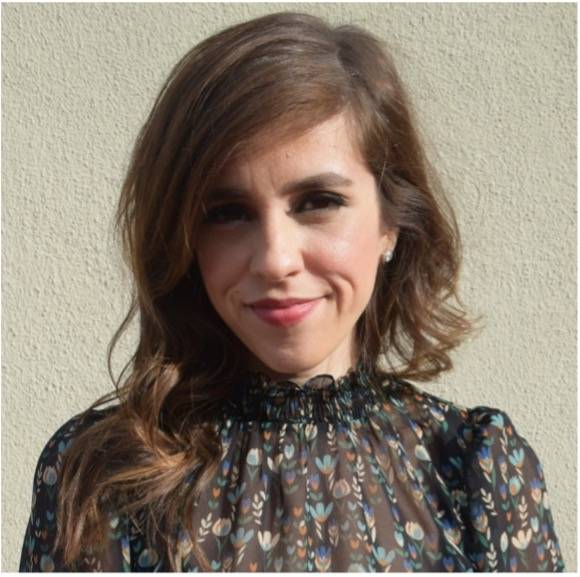
Born and raised in the small South Texas town of Beeville, Colleene always dreamed of living and working in New York City. After graduating from high school, Texas State was the first stop in her journey. As an undergraduate, Colleene chose to major in psychology and initially planned to become a therapist. However, as is often the case, her goals expanded as she learned more about the opportunities available to her at Texas State. After graduating with a bachelor’s degree in psychology 2010, Colleene ultimately returned to Texas State to earn a certificate in mediation in 2012 and a master’s degree in legal studies in 2014.
After a brief stop in Austin, Colleene finally made her move to NYC. She arrived in the city knowing only one person, but she knew if she gave up on her dreams, then she would always regret it. She took a leap, and it has worked out well for her. Colleene currently lives in Brooklyn, where she works as a Legal Recruiter and Personal Development Coach. Trained in ontological coaching, Colleene enjoys supporting people as they work to identify their goals and achieve their dreams. She describes her coaching approach as positive and forward moving. She strives to meet her clients exactly where they are and to help them connect with their purpose.
Most important thing she learned at Texas State: Everything you learn in psychology can help you in your interactions with people and in your career.
Favorite classes at Texas State: Introduction to Psychology with Dr. Stan Friedman and Abnormal Psychology with Mr. David Carpenter.
Fondest memory of San Marcos: Floating the river with friends any time it was 80 degrees or above and connecting with nature.
Advice to current Texas State students: Soak up every second of being a college student at this beautiful university and being on your own for the first time. Live and be present and try not to worry too much about the future. Life is not a linear journey. There are going to be twists and turns and mysteries and dramas. So, embrace it! Rather than focusing on what you want as a job title or what salary you should make, focus on who you want to be in the world and what sort of impact and legacy you want to leave. Everything is going to come together for you.
-
Stephen Ramos, '16
Stephen Ramos, Ph.D. Candidate
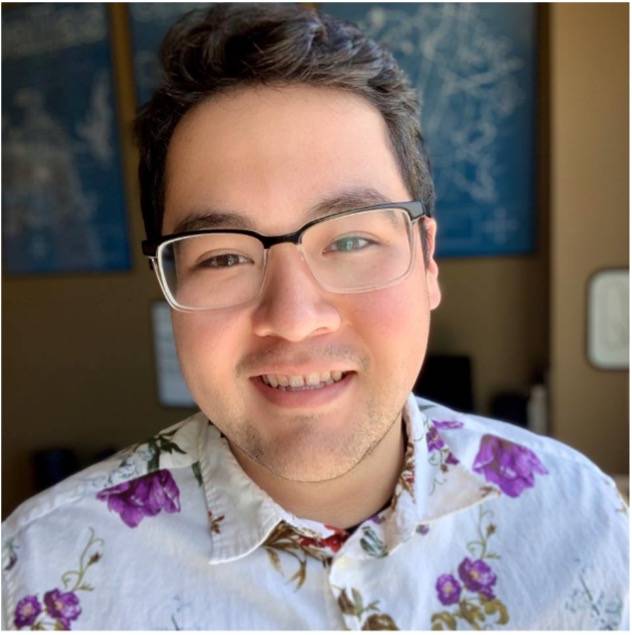
Stephen Ramos grew up playing mariachi music and originally entered college as a music major at the University of North Texas. However, he quickly discovered that he was more curious about evoking emotions and behaviors through music and turned to a career in psychology. As an undergraduate, Stephen worked at a psychiatric hospital and assisted with several psychological research studies. It was through these experiences that Stephen fell in love with psychological research and ultimately decided to pursue a Master of Arts in Psychological Research in the MAPR program at Texas State. As a graduate student, Stephen worked closely with Texas State researchers Dr. Ty Schepis and Dr. Krista Howard, publishing research on a variety of topics related to human health.
After graduating from TXST in 2016, Stephen entered a PhD program in Clinical Psychology at the Illinois Institute of Technology (IIT) in Chicago. At IIT, his research focuses on health psychology with a special interest in HIV, health inequity, and marginalized communities. His dissertation is a grant-funded investigation of barriers and facilitators to the use of pre-exposure prophylaxis (PrEP), an HIV preventative medication. Beyond his dissertation project, Stephen wears several hats. He is leading a study investigating social determinants and mental health as predictors of COVID health disparities in Chicago, and he works as a testing supervisor for the Chicago Public School System. He is also the 2020-2022 Health Psychology representative for the American Psychological Association Science Student Committee, a role in which he advocates for graduate student and early career psychologists.
As he nears the end of his PhD training, Stephen is looking forward to starting his internship/residency in Clinical Health/Medical Psychology at the University of Florida, where he will have the opportunity to conduct assessments and provide psychological treatment for patients in areas such as chronic pain, bariatric surgery, sleep medicine, oncology, and transplantation.
Most important thing he learned at Texas State: Stephen credits Texas State for building his statistical proficiencies and leadership skills, which he continues to use today. He notes that the lessons he learned from the MAPR program helped him to have a strong foundation and to hit the ground running in his career.
Favorite classes at Texas State: Psychopharmacology with Dr. Ty Schepis and Health Psychology with Dr. Krista Howard.
Fondest memory of San Marcos: Climbing the Alkek Library stairs (sarcasm noted!), grabbing lunch and coffee with friends at Tantra, Lolita’s, Dos Gatos, and that one fantastic taco shop inside the Exxon that nobody every really knew the name of.
Advice to current Texas State graduate students: The MAPR program is designed for your development. This is an opportunity to further your education, as well as to diversify your personal and professional network. The skills and connections that you gain from this program will be very important to your future. Lastly, save all of your statistics notes!
-
Zachary Tedder ’12
Zackery Tedder
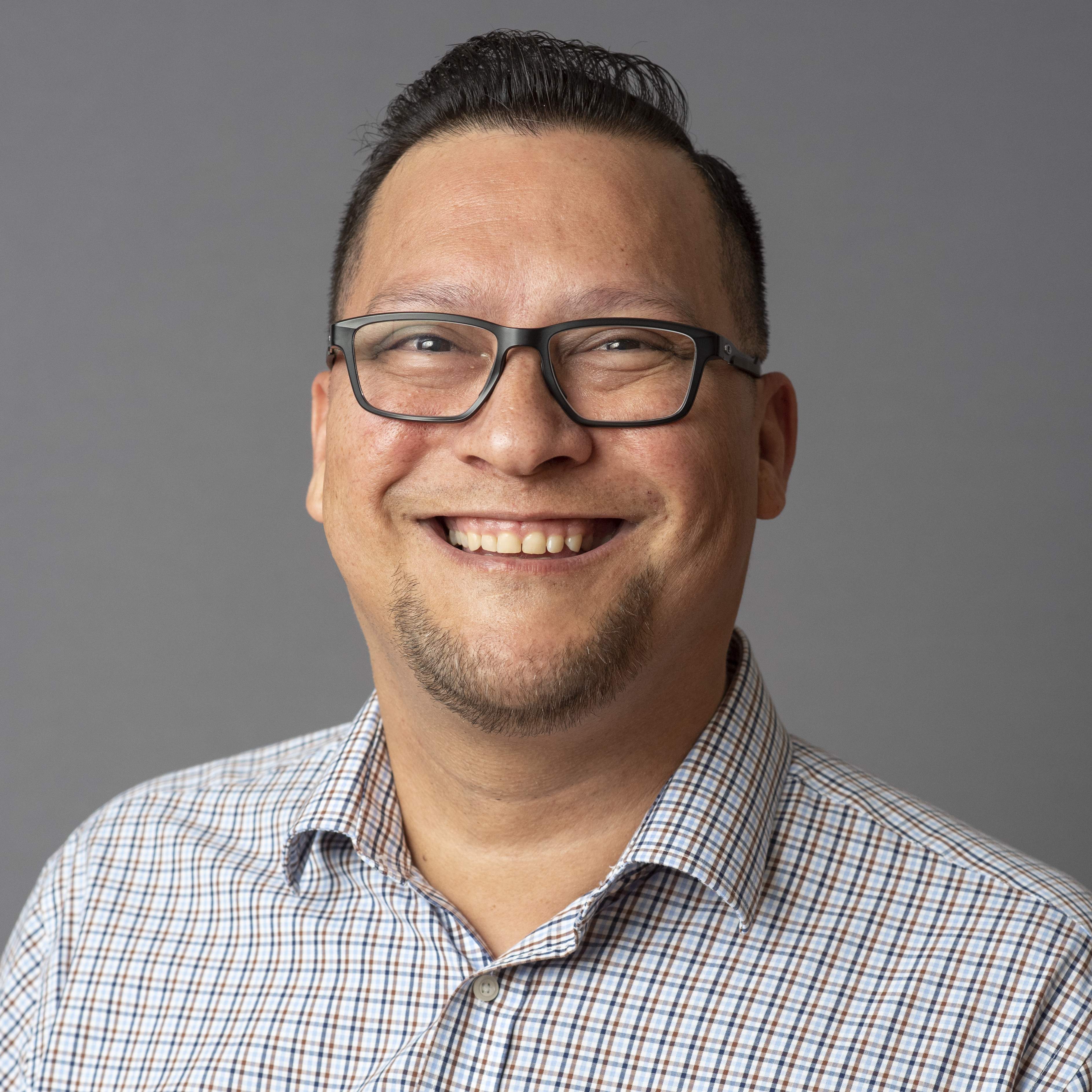
Zackery Tedder earned his B.S. in Psychology in 2009 and his M.A. in Health Psychology in 2012 from Texas State University. He is currently a Lecturer of Forensic Psychology in the Psychology Department at Texas State University. He successfully defended his dissertation titled Ketamine Assisted Psychotherapy for Infusions – Guidelines for Practice on December 15, 2022 and in the final stretch of obtaining his Doctor of Psychology degree from Capella University. He is also currently working as a Doctoral Resident in private practice at Meet Your Mind Austin under the supervision of Dr. Lauren Farwell, PsyD, and Dr. David Hill, PsyD. Mr. Tedder is currently in the final phase of obtaining his internship hours and is anticipated to graduate with his doctoral degree in September in 2023. Mr. Tedder plans to continue with Meet Your Mind Austin for his post-doctoral work upon his graduation to become fully licensed as a Clinical Psychologist.
Favorite class at Texas State: Social Psychology with Dr. Mendez. He still finds himself thinking about many of the lectures from that class, even all these years later. It is a joy for him to see and visit with Dr. Mendez as a fellow faculty member.
What he would say to his student self: Mr. Tedder would tell himself to keep pushing and that he is going to go far in this field. Just believe in yourself. There are good things ahead. And to everyone who told him “It will pay off in the end”, they were right!
Advice to new Texas State students: Mr. Tedder encourages students to be curious and to give yourself an opportunity to get to know your professors. They will be a wonderful resource for you in the future, so long as you forge a relationship with them.
Advice to Texas State students getting ready to graduate: Mr. Tedder wants students to that there is life after college. He also warns not to get wrapped up in applying to graduate school if you need a break. Opportunities exist past the university system, and you can always come back later!
-
Eddie Vela ’80
Eddie Vela, Dean of the College of Behavioral and Social
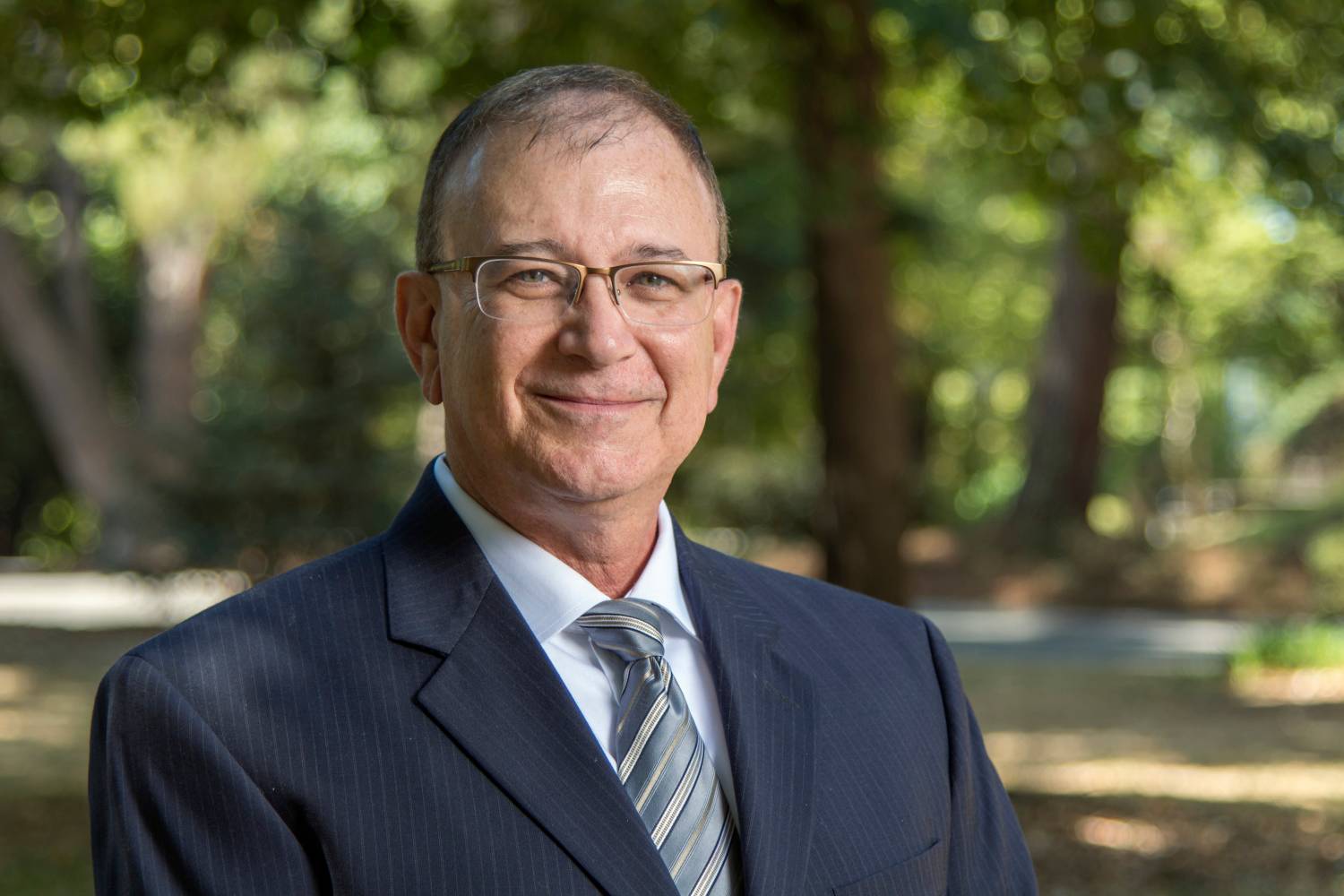
Sciences, CSU Chico
Eddie Vela completed his undergraduate degree in psychology at Southwest Texas State University 1980. Following his graduation, he pursued a doctoral degree in cognitive psychology at Texas A&M University. Shortly after graduating from Texas A&M, he accepted a tenure-track faculty position at California State University in Chico, California. In Chico, Dr. Vela was not only able to pursue his research interests but was able to pursue his passion for teaching classes in perception, cognition, and related areas. After achieving the rank of full professor, he was urged to take on the role of Associate Dean for the College of Behavioral and Social Sciences. Although he was a bit reluctant at first, after accepting the position, he realized that he could effect positive change at a broad, systemic level through an administrative position. After serving as Associate Dean for a few years, he was promoted, and he currently serves as the Dean of the College of Behavioral and Social Sciences. Although he is no longer in the classroom, he feels he is in the best position to be able to promote student success.
Was this always your career plan?
Dr. Vela’s original plan was to be a professional student by having a niche in academia. At SWT, he also developed a passion for research and eventually became a competent researcher.
What was your favorite class at SWT?
Dr. Vela especially enjoyed his statistics and research classes. He also appreciated Dr. Theron Stimmel’s Psychology of Learning and Memory class. He also acknowledged Dr. Sandra Merriman and Dr. Harvey Ginsburg. Because of his appreciation for the study of philosophy, Dr. Vela also acknowledged his admiration for Dr. Gil Fulmer from the Philosophy Department.
What is your fondest memory of San Marcos?
Dr. Vela remembers the San Marcos river and playing frisbee on the banks of the river.
If you could go back in time and talk to your student self, what would you say to him/her/them?
Dr. Vela feels strongly about the value of faculty resources and the part these resources play in student success. He encourages students to explore faculty research interests at any institution they are interested in attending so that they can find the right fit. Should a student be given the opportunity to interview, they should be prepared, having explored the institution, to be able to express how their values and mission align with the those of the institution.
-
Stephanie Ward, '09
Stephanie Ward, Outpatient Mental Health Adult Services

Stephanie Ward is Administrator of Outpatient Mental Health Adult Services for Tri-County Behavioral Healthcare, a community, local mental health authority in Conroe, Texas. She has worked for Tri-County Behavioral Healthcare for 10 years. Stephanie majored in Psychology and graduated from Texas State in 2009. She earned a master’s in counseling from University of St. Thomas in 2014, while working full time and taking night classes. She is an LPC and is eligible to be an LPC-supervisor. Her day-to-day work has transitioned from providing direct care to severely mentally ill individuals to her current administrative role, which includes supervising clinicians and practicum students and supporting and educating staff. She is also involved in community partnerships, outreach, and education. She enjoys the client population her organization serves. She appreciates supporting clients in times of crisis, hearing stories of growth, helping clients to overcome their own stigmas, and that there is a never a dull moment at work.
Most important thing she learned at Texas State: She says that all her knowledge about psychology and human behavior that she uses in her career came from being immersed in her psychology courses at Texas State. She also enjoyed getting involved in research by assisting Dr. Haskard and Dr. Mendez. These research experiences and her courses taught her to stay updated with the latest research in psychology and to put that knowledge into practice. She also appreciated learning to talk about mental health through her involvement in a panel that spoke to the community.
Favorite classes at Texas State: Abnormal Psychology and a course in the Honors program called America in the 60s, which addressed mental health care.
Fondest memories of San Marcos: The San Marcos River, especially enjoyed taking her dog to the river. She enjoyed the friendly people in San Marcos and eating at Herbert’s Taco Hut.
Advice to new Texas State students: Take the opportunity to explore different classes and majors. Don’t get stuck on one major. Ask questions of people in the field you want to work in, such as what they like and don’t like about their jobs and what a typical work day is like.
Advice to students approaching graduation: Her psychology professors encouraged her to get a master’s degree or higher for working in the psychology field. She’s glad she made the decision to get a graduate degree. She found getting an LPC to be a broad license that allows her to work with varying populations. She encourages students to learn about the psychology field by getting experience working in direct care settings.
-
Dr. Celia Watt, '86
Dr. Celia Watt, SUNY-BROCKPORT
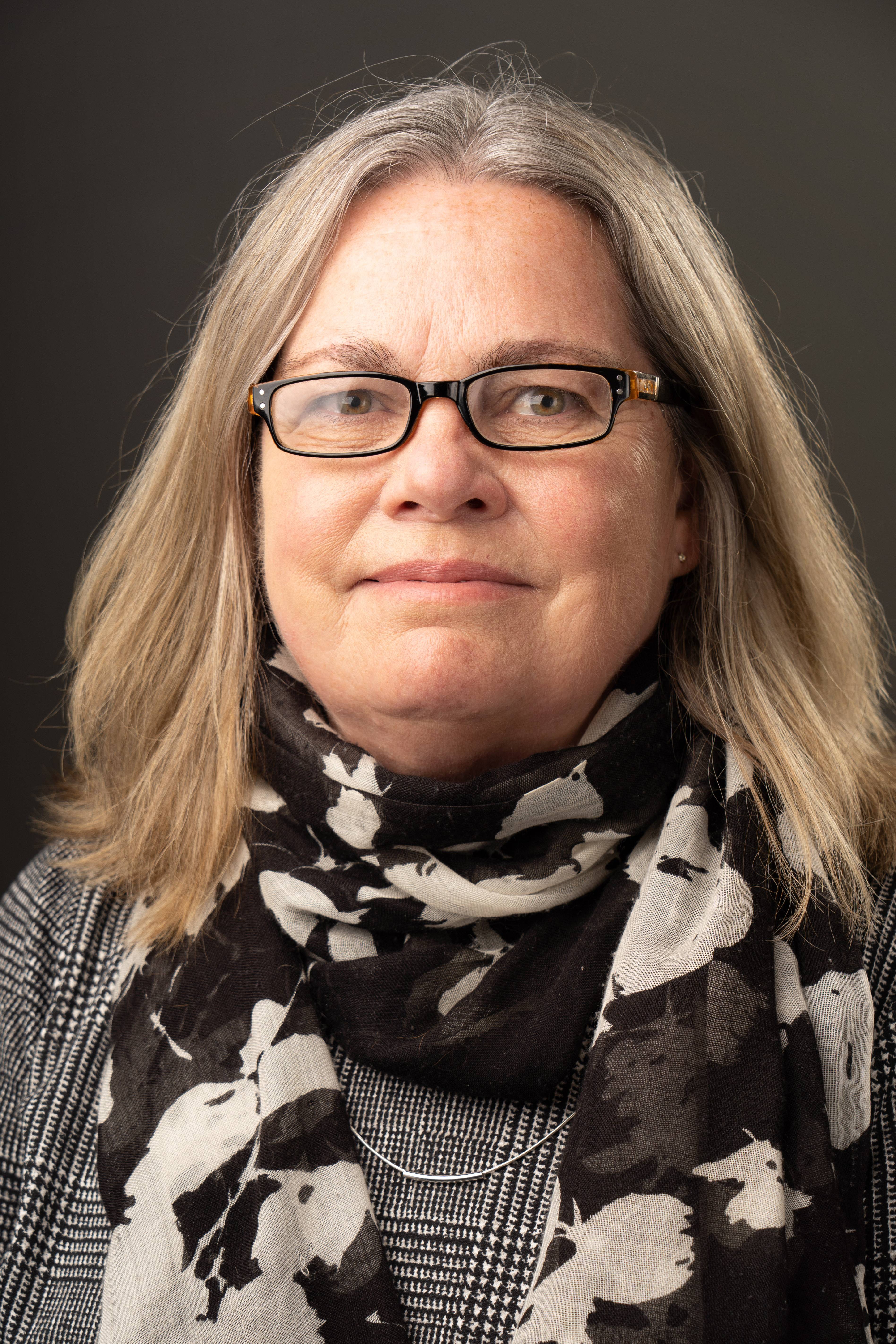
As a psychology major at Texas State, Celia was walking down the hall one day when Shirley Ogletree called out to her from her office and asked her if she was going to take the GRE. Until this point, she had never considered it. She ended up taking it and doing well. She was also doing research with John Davis and Harvey Ginsburg and presented her results at the Southwestern Psychological Association’s annual conference. Because of these experiences, after graduating from Texas State, she was accepted directly into a PhD program in Educational Psychology at the University of Texas, Austin. While completing her PhD, she began researching tobacco cessation and control, which led to her embarking on a career as a professor in the department of health science for 17 years at the State University of New York (SUNY)-Brockport. She was then asked to step in and serve as the Chair of the Department of Public Administration for a year at SUNY-Brockport. Given her experience with creating policies surrounding tobacco use and smoke-free workplaces, the position was a good fit, and after ten years, she is still the Chair of Public Administration.
Most important thing she learned at Texas State: As a Psychology major, Celia gained a broad base of knowledge at Texas State that she still uses today, ranging from organizational behavior principles to developmental psychology that has helped with raising children.
Favorite professor at Texas State: Harvey Ginsburg. Although his class was rigorous and challenging, he taught students a lot. She also enjoyed conducting research with Dr. Ginsburg, as it gave her a chance to get to know him as a real person.
Fondest memories of San Marcos: Grin’s hamburgers and the ability to walk everywhere. San Marcos is the perfect collegiate atmosphere where no one is a stranger. You can walk down Main St. and see someone you know.
Advice to new Texas State students: This is your moment to get your money’s worth. Do everything you can to get to know your professors, join a research team, join all the nerdy clubs. Public education is an amazing opportunity and recognize the privilege it is to get an education.
-
Sterling Wilmer, '17
Sterling Wilmer, BA
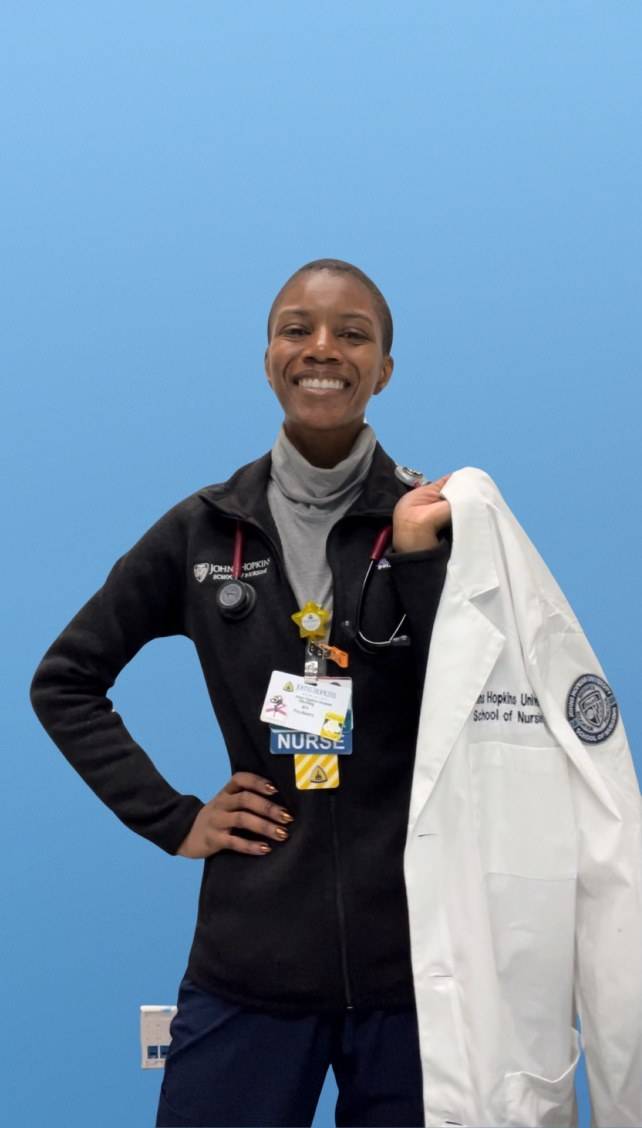
Sterling Wilmer graduated from Texas State in 2017 with a BA in Psychology and a minor in Forensic Psychology. She received her BSN-RN from NYU and is currently a doctoral student with a concentration in psychiatric nursing practice at the Johns Hopkins School of Nursing, an adjunct instructor of nursing at Towson University, and a registered nurse at the Johns Hopkins Bayview Medical Center Memory Clinic. She is also currently a Fellow in Health Policy and Media at George Washington School of Nursing, where she is conducting a research project on new nurses, focusing on retention of nurses with under 2 years of practice, through providing mental health resources, building resilience, and career guidance and support. She recently gave a TEDX talk “Resilience is Rooted in Community” (https://youtu.be/52kEL0J-GUY?si=4mD3jrVMhxY9aFRN). She is interested in research collaborations and connecting with other TXST alumni (swilmer7@jh.edu).
Most important thing she learned at Texas State: She says that her experiences at Texas State broke her out of her shell, built her confidence, and inspired her belief in the importance of a supportive community. She was involved with organizations, including the University Star and Black Women United (BWU). She practiced speaking and podcasting with BWU, found and gave support, and gained leadership skills. She also had professors who read her opinion columns for the University Star and wanted to discuss them with her. Experiencing this interest in her endeavors motivated her to want to be a professor.
Favorite classes at Texas State: Psychology of Human Diversity with Dr. Mendez, especially the seminar style of the class. Forensic Psychology with Dr. Bitney, particularly how interesting the material was and how personable and passionate Dr. Bitney was.
Fondest memories of San Marcos: Sterling remembers the Exxon gas station tacos and the peaceful nature on campus, especially the hills, paths, and trees. She enjoyed sitting by the river in Sewell Park and participating in Texas State tailgates and Bobcat culture.
Advice to new Texas State students: Recognize that you are going to change, and your experiences will change you for the better. Go after what you are passionate about. Be open to new clubs, friends, and experiences. For example, she didn’t expect to write for the newspaper, but she took the opportunity, and it gave her a voice, outlet, and community.
Advice to students approaching graduation: Don’t get discouraged. Remember all of the hard work you did, and trust your instincts. Lean on the resources you have for your letters of recommendation, job search, etc. Stick with your passion. Keep your fire and energy about life moving forward, and know things are going to work out.
-
Kevin Wilson, '10
Kevin Wilson, MBA

Kevin Winslow, MBA (Class of 2010) is a graduate of the B.S. in Psychology Undergraduate program at Texas State University. Since his time at Texas State, Kevin has worked in multiple roles locally and across the country. Now, he is settled in the Austin area with his wife and two children. After he graduated from Texas State in 2010, Kevin took a job with the MD Anderson Cancer Center as a Laboratory Technician and was later promoted to Senior Coordinator of Research Data. During his time at MD Anderson, Kevin gained experience and advice from researchers and doctors, and ultimately narrowed his interests toward the business side of healthcare. He noticed a need for organizational structure and administrative oversight in his time coordinating data operations. From there, Kevin decided to pursue an MBA focused on Healthcare Administration and Operations. Since his graduation from the Naveen Jindal School of Management at UT Dallas, Kevin has worked in multiple business consulting roles, where he frequently uses tools from his undergraduate program – like statistical analysis and interpersonal skills. More recently, Kevin served as the Director of Operations for Radiology Partners in Los Angeles, California (3 years), and is presently employed as a Vice President of Operations for Vision Radiology. When looking back at his time at Texas State, Kevin noted the beauty of the campus, and how his Psychology degree helped him understand the influence of interpersonal relationships on his successes, stating, “life is about relationships, try to focus on the importance of building connections with other folks and see different opportunities unfold.” He emphasized the importance of trying out different identities and interests while in college, especially for Freshman students. Kevin also has great advice for students at any step in their academic or occupational careers, stating, “follow what feels right, and you will get to a good place.”
